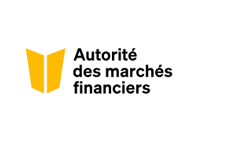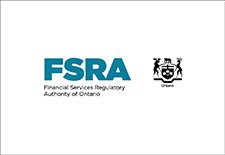Discover financial empowerment resources
Discover financial empowerment resources
If you’re getting texts from seemingly legitimate sources asking you for personal information, it could be a phishing attempt. Phishing scams are increasingly common. Protect yourself by learning how to spot phishing attempts and other variations of this...

Stand Against Scams is a national awareness campaign Canadians to help protect themselves from scams. Canada's major organizations are teaming up to protect Canadians and to fight scammers. The money stolen through scams is often used to fund human trafficking, organized crime, terrorism, and more....

Whether you’re on a vacation at a resort, waiting in the airport or sitting in a coffee shop, it’s often possible to connect to the Internet through a wireless network provided by the property owner. Sometimes these will be offered for a small fee and sometimes they will be free. But be...

This guide sets out five steps to help you avoid financial fraud and presents the main types of financial fraud. By familiarizing yourself with them, you can reduce the risk of fraud and avoid a lot of...

This report by the OSC’s Research and Behavioural Insights Team looks at the development and deployment of AI systems in capital markets which raises important regulatory questions. The OSC takes a holistic approach to evaluating the impact of AI systems on capital markets, including...
Braiding Mind, Body, and Spirit: A Financial Wellness Bundle is a resource designed to help Indigenous individuals, families, and communities make confident money choices with settlement funds. This 60-minute webinar brought together the co-creators of the resource to highlight the need for...

Tips and tools to help you recognize, prevent, and report scams, keeping your finances and personal information safe. Available in...

A culturally grounded resource to support Indigenous financial wellness. Braiding Mind, Body, and Spirit is a financial wellness bundle created by and for Indigenous individuals and communities. Developed with Indigenous teachings, community voices, and practical tools to support individuals,...
Scams come in many forms—whether it is a suspicious text, a phishing email, an unexpected phone call, or a fake website. Scammers are always coming up with new ways to trick people, but you can protect yourself by staying alert. If you ever suspect you have been targeted by a scam, it is...

During the income tax filing season, scammers pose as representatives of the Canada Revenue Agency (CRA) in an attempt to trick you into sending payment for fictious "debts" or into providing sensitive personal information that they can use to commit fraud. Scammers might send you convincing, and...

Home improvement projects can be a great way to update and enhance your living space. For some older adults in Canada, however, these projects can sometimes lead to scams and financial abuse. While anyone can be a victim of financial fraud, older adults are often a target for door-to-door...

Identity theft is quite prevalent. Somebody may have managed to obtain an important piece of personal information such as a password, your date of birth, your credit card number, your phone number or your SIN. This resource by the Authorité des marchés financiers provides a few tips to help you...

Artificial intelligence (AI) technology has made it easier to create convincing scams. From AI-generated phishing scams to voice cloning, the tricks are evolving, but you can still protect yourself. Access this resource to recognize the signs of a scam and stay...

The Financial Services Regulatory Authority of Ontario (FSRA) is responsible for protecting the rights of consumers in Ontario by promoting high standards of business conduct and transparency within the financial services they regulate. Financial services professionals are not required to use...

Whether you are buying insurance for your home or things you own, FSRA’s role as a regulator is to ensure that those selling insurance are licensed and following the legislation for property and casualty Insurance. Learn more by visiting the Financial Services Regulatory Authority of Ontario...

When you buy life or health insurance, FSRA protects you by ensuring insurance companies and life and health agents are properly licensed to operate in Ontario and that they comply with the Ontario Insurance Act. Learn more by visiting the Financial Services Regulatory Authority of Ontario...

To give you confidence when seeking advice from anyone using a Financial Planner or Financial Advisor, or similar, title in Ontario, FSRA requires these individuals meet a minimum standard of education and be supervised by a FSRA-approved credentialing body. Use this website to: Check...

Financial Services Regulatory Authority is responsible for registering all federally incorporated loan and trust companies that do business in Ontario. They enforce the Loan and Trust Corporations Act that govern loan and trust companies. Use this website to learn more about: How to find a...

FSRA’s role as regulator is to ensure pension plans meet the legal standards in the Pension Benefits Act. They can also help you if you can’t get the information you need from your plan administrator or want to file a complaint about your pension plan. Use this website to learn more...

Financial Services Regulatory Authority, through the Deposit Insurance Reserve Fund (DIRF), provides coverage of non-registered insurable deposits, such as a chequing or savings accounts, up to a maximum amount of $250,000, while deposits in registered accounts, such as RRSPs or TFSAs, have...

Under the Mortgage Brokerages, Lenders and Administrators Act, 2006 (MBLAA) all individuals and businesses in Ontario who carry out regulated mortgage brokering activities must be licensed with the Financial Services Regulatory Authority unless otherwise exempted by the Act. As regulator, their...

Financial Services Regulatory Authority’s role, as a regulator, is to ensure that insurance companies’ proposed rates are fair and not excessive. This website will help you learn about: What to do after an accident How to save on auto insurance Filing a complaint Getting an auto...

The Canadian Securities Administrators compiles a list of member investor alerts that is intended to assist the public and the securities industry in conducting due diligence. The subjects of these alerts are persons or companies who appear to be engaging in securities activities that may pose a...

Securities regulators from each province and territory have teamed up to form the Canadian Securities Administrators, or CSA for short. The CSA is primarily responsible for developing a harmonized approach to securities regulation across the country. Have you ever considered how much of our lives...

The Nova Scotia Securities Commission has investor education videos covering a range of topics from recognizing frauds and scams to learning more about investing and compound interest. Access this resource to see them...

